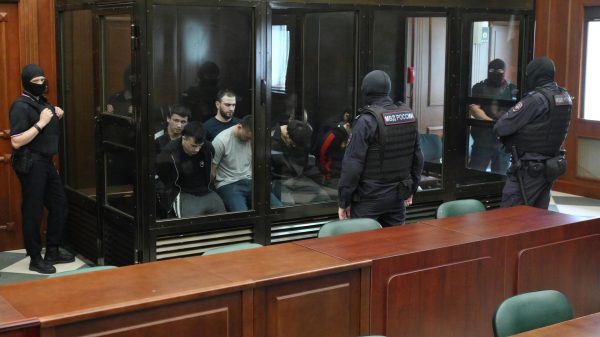The government of Brazil has been ordered by the Inter-American Court of Human Rights to pay $5m (£4.1m) to 128 former farm workers who were enslaved on a Brazilian farm between 1988-2000.
Brazil is the first country to be fined for failing to prevent slavery within its borders by the court, the legal arm of the Organisation of American States (OAS), a political and juridical forum comprising all 35 independent states of the Americas.
Brazilian women kick back against Temer presidency with capoeira
Read more
In a judgment in late December, the court ruled that Brazil had failed to put in place adequate measures and policies to prevent modern slavery and ordered the government to pay $5m to the workers. The 128 men were used as slave labour on Fazenda Brasil Verde, owned by the Quagliato Brothers group, one of the biggest cattle ranching companies in the north of the country. The ministry of work conducted 12 raids on the farm between 1988 and 2000 and rescued 340 workers from conditions of debt bondage and slavery.
In one of the last raids in 2000, officials found workers being watched over by armed security guards, threatened with violence and left without adequate shelter or food. They were promised salaries that they never received.
Xavier Plassat, coordinator of the National Campaign Against Slave Labour for the Pastoral Land Commission (CPT), said the ruling had far-reaching implications for the continent as it highlighted the responsibility of individual states for preventing slavery within its borders.
He also commended the Court for emphasising the role that racial inequality and poverty plays in increasing vulnerability to labour exploitation.
The case was brought to the OAS by the Centre for Justice and International Law (Cejil) and CPT in 2013. Until the court made the ruling in December, no criminal charges had been levelled at Fazenda Brasil Verde and none of the workers had received any compensation.
As well as demanding the $5m payment, the court also ruled that the Brazilian government must reopen investigations into the case.
According to the NGO Walk Free, an estimated 160,000 people are trapped in some form of slavery in Brazil. More than 50,000 people have been released from conditions of slavery since 1995.
‘We are writing the history of Zika’: one year into the crisis in Brazil
Read more
The ruling comes amid growing concern about proposed legislation that would amend and narrow the legal definition of slavery, something that anti-slavery activists fear would curtail efforts to clamp down on widespread and hidden labour abuses in Brazil’s corporate supply chains.
Leonardo Sakamoto, a political activist and director of the NGO Repórter Brasil, described the proposed amendment to existing slavery definitions as an “ambush from all quarters”, which is being propelled forward by the hugely influential agricultural lobby in parliament.
“Michel Temer’s government could dismantle everything that has been built to end slavery, and it could happen at any minute,” he said.
Brazil’s Special Secretariat for Human Rights has confirmed that the government accepts the judgment delivered in the Fazenda Verde Brasil case and affirmed that it presents an opportunity for the state to strengthen and improve national policy on slave labour.
Xavier Plassat said, “It’s hard to believe that the Brazilian government will take effective measures to break the slavery cycle, in terms not only of prevention, but of repression, punishment and social inclusion.”























































Свежие комментарии